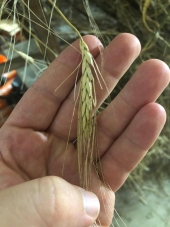
 1
1




 4
4




It's never too late to start! I retired to homestead on the slopes of Mauna Loa, an active volcano. I relate snippets of my endeavor on my blog : www.kaufarmer.blogspot.com

 4
4




List of Bryant RedHawk's Epic Soil Series Threads We love visitors, that's why we live in a secluded cabin deep in the woods. "Buzzard's Roost (Asnikiye Heca) Farm." Promoting permaculture to save our planet.
 3
3




Argue for your limitations and they are yours forever.
 1
1




Teach me of your sacred plants, spaces, places. Share me your songs that I may share the stories to those not yet born.
 2
2




 1
1

















 1
1




 1
1




"Also, just as you want men to do to you, do the same way to them" (Luke 6:31)




Low and slow solutions




Living a life that requires no vacation.

|
Live large! And I'm talking to you tiny ad!
Homestead Pigs Course
https://permies.com/wiki/365748/Homestead-Pigs
|








